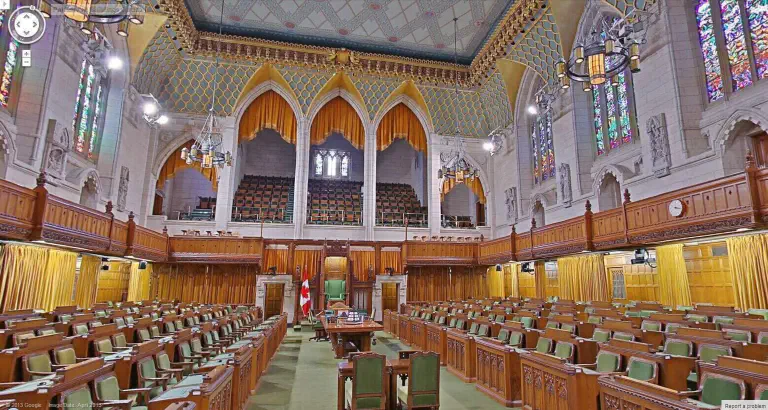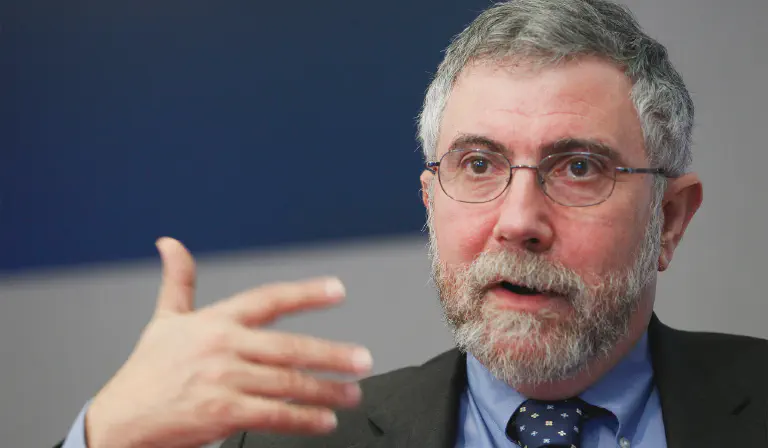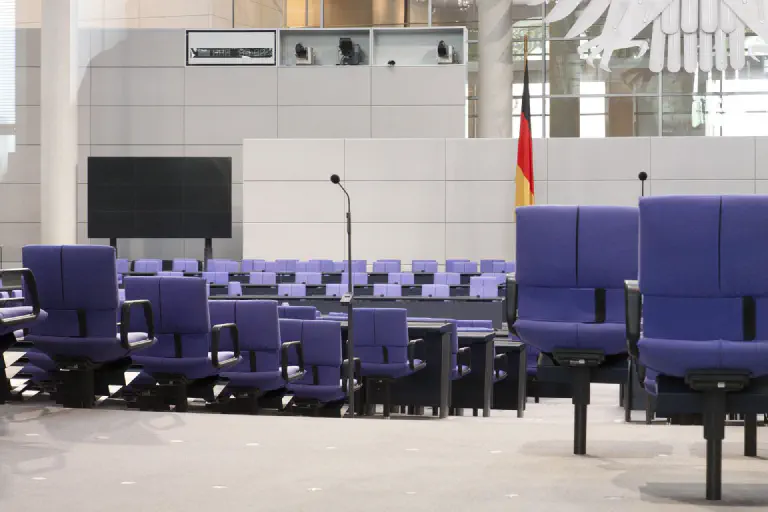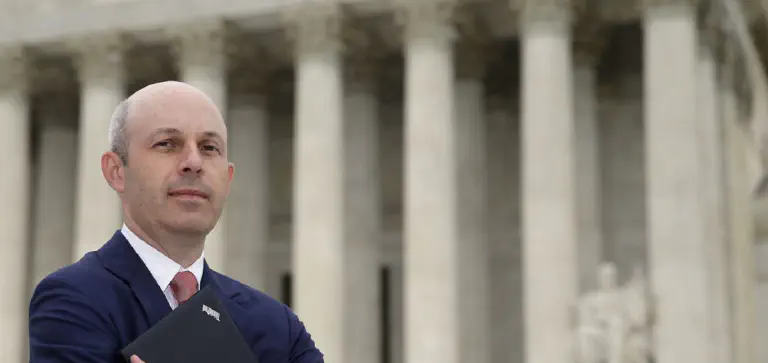Remember last October? Under Stephane Dion, the Liberals were, by no small margin, consistently behind the Conservatives in the national public opinion polls. Then the Conservatives released their economic update and political mayhem ensued. Stephane, Jack and Gille went up the hill and planned a coalition coupe. Stephan Harper set a frighteningly partisan political precedent by proroguing parliament when the conservatives were facing an election they looked likely to lose. And, after Mr. Dion was axed by the carbon tax, Sir Iggy was crowned the new Liberal king. By April the country was questioning Tory motives and the Liberals had passed the Conservatives in the polls (EKOS Research Associates posted the poll with the greatest spread marking the Liberals at 36.7% and the Conservative's at 30.2%).
This October an Ipsos Reid popularity poll showed the Liberals at 29% and the Conservatives at 39%. Liberals across the country want to know what happened. Was it a) The naming of Finance Minister Jim Flagherty as Euromoney magazine's Finance Minister of the Year, b) Stephen Harper's winning performance of (With a Little Help from My Friends), or c) Michael Ignatieff's declaration of non-confidence after the first reading of Bill C-50, (An Act to amend the Employment Insurance Act and Increase Benefits,) The answer is (d), all of the above. Let me explain.
G-20 bankers and international finance elites were impressed with Finance Minister Jim Flagherty's sound fiscal management and quick response to the global economic crisis. And though some might point out the original Conservative budget in 2008 didn't include an economic stimulus package, most Canadians would have to agree, if Canada's finances should be managed with corporate fiscal prudence, the current Finance Minister is the man for the job. Don Drummond, the chief economist at Toronto Dominion bank, who helped TD dodged the credit crisis bullet, was quoted in the Globe and Mail saying, (You have to admire minister Flagherty's tenacity. He hits like a brick wall, and he comes back at it time and again to get things done. Others, including myself, gave up on a national securities and exchange commission, thinking it was hopeless. But he just keeps on kicking." If the Conservatives had only one thing going for them, it would have to be financial management.
Further, the Conservatives still command the confidence of the House, which suggests their Olympian economic river rafting has overshadowed their seeming lack of social responsibility and failure to draw any correlation between environmental stewardship and record rainfall. Jim Flagherty? Definitely contributing to Liberal misfortune!
Lately it seems the Conservative marketing machine can do no wrong. Well-placed attack ads dismantled Stephane Dion's bid to run the country. In May of this year, after the Conservatives no longer needed Liberal support for their January budget, Michael Ignatieff was forced to square off against attack ads with quotes like this one, (We need a new kind of politics, a better kind of politics, a politics that relies not on spite and spin but on civility and common purpose.)
The Conservatives responded by rebuilding Stephen Harpers image. It worked. The Stephen Harper we know today is more understandable. When he first came to power in 2006, he had issues with the press; there was remoteness about him. Now, with a little help from his friends (Yo Yo Ma and Ringo Star), he's a much friendlier and likeable man. So likeable in fact, the bulk of the Canadian electorate, which does not support the Conservative party platform is peeking fearfully through parted fingers at a Leader who might just believe in something. Don't forget, though he reneged shortly before proroguing parliament and appointed conservative friendly senators to empty seats, it's well known he's long been an advocate of a democratically elected senate. Either a democratically elected senate is easier to control or Stephen Harper has an underlying democratic vision. Now there's a revelation that would definitely show in the polls.
Which brings us back to recent diminishing Liberal popularity: unfortunately for the Liberal creed, no matter how articulate, highfalutin references to hamlet don't win voters. Iggy could have gone for Halloween as the Stephen Harper of old, so far has he strayed from the charismatic path. But his dry wit was there when he was popular. There is another more substantial moment that turned the tide on the Liberal Party. Newspapers country wide questioned if Michael Ignatieff and the Opposition Leaders Office stood up to the Harper government on Bill C-50 because they felt the bill was an insult to Canadian's or because they wanted an election?
Optimistic Liberals believe the EI election connection was a ruse. We like to think Michael Ignatieff chose the bill as a non-confidence issue because he wanted to let the Cabinet know he was serious about toppling the government, not because he wanted an election. And though the Conservatives may have shot back, calling the refusal nothing more than a self-serving partisan tactic, others might say he was only doing his job. Either way, any well-staffed OLO should have recognized that Parliament was in session for only two weeks between September 2008 and February 2009. Even the suggestion of an election after such a lay-off could prove to be political suicide.
A closer look at Bill-C50 explains why its first reading was a pivotal point in the recent Liberal party decline. It's a temporary chop job on a dinosaur piece of legislation. It segregates people into worthy and unworthy categories, discriminating against many of the unemployed. The Canadian Labour Congress, who might be the most out spoken organization on employment issues points out, (The target group is very explicitly older workers who have made very limited use of the EI system -- meaning younger workers, many women, workers in high unemployment regions, workers in seasonal industries, and many industrial workers will not qualify. That is why only 190,000 will qualify over three years compared to 1.6 million unemployed workers today.)
That said, when the bill that sank Ignatieff went to committee on October 8th, strong statements like this one from the CLC's President, Ken Georgetti, left the impression it will be granted Royal Assent by January 4th, 2010. (The only change I have is that I'd like to see a better bill. But not passing this bill would just hurt more people. That's the only problem we're stuck with. We'd like to see a bill that decreases the hours, increases the duration, and increases the amount.) The CLC seems to believe it's not the bill but the EI act itself that is in need of major reform. (We're negotiators, and if something is on the table that will benefit a lot of people and we say we'll take it, it never stops us from working for the rest.) The CLC's stance on the bill was mirrored by the United Steelworkers and the NDP. The Liberal Party's minority expression of non-confidence on Bill C-50 was easy pickings for the Conservative marketing machine and definitely contributed to a decline in the polls.
So are the Conservatives going to get their long awaited majority---probably not? For one, in politics there is always a special place for the underdog (it's called Stornoway). The abashed Liberal Party has read the tea leaves and made changes to the inadequately managed OLO. The previous Principle Secretary of the OLO, Ian Davey was replaced by Chr�tien's former Communications Director, Peter Donolo. Many hope this change will put the Liberal Party back on track, winning voters by sticking to long time Liberal values like social responsibility, environmental stewardship and global humanitarian leadership.
Secondly, the better financed and currently better managed Conservative Party still has skeletons in the closet. The notion of a democratically elected senate aside, Canadian's are unlikely to forget the Conservatives don't always stick to a clearly defined moral high-ground. They scrapped the Kyoto accord, they devastated environmental research funding and more recently they acted on behalf of Canadian shipping companies and asked the Environmental Protection Agency in Washington D.C. to weaken proposed measures to limit the use of high polluting bunker fuels on the Great Lakes.
Even more recent is the government interest rate debacle. According to Auditor General Sheila Fraser, taxpayers were losing $30 million annually because the Government of Canada paid corporations five to seven percent on overpaid taxes. In days gone by if you wanted that kind of return you had to purchase ABCP, and we all know where that led. Granted the government has fixed the issue by reducing the interest rate on overpayments to 3 percent, voters might still consider this corporate payoff a breach of trust.
And there is the magic word: trust, the ever present thorn in the side of an otherwise well-liked Conservative government. They may have the confidence of a divided house, but it remains doubtful that Canadians would be inclined to give a majority of seats to a government that quietly sides with industrial lobbyists on every environmental issue.
At the end of the day the political field is every bit as exciting as it was last year. Followers of the political drama can ask themselves a few questions. Maybe the Conservative Party's Achilles heel is a failure to recognize that Canadians really are humanitarian do-gooders, who are proud of taking the lead in the world by setting humanitarian, environmental and multi-cultural examples? Maybe the Liberal Party will take a page from the recently edited conservative play book and let there opponents do the sinking? Maybe we Canadians need to be thankful we have a minority government situation, maybe we are getting the best of both worlds?



















